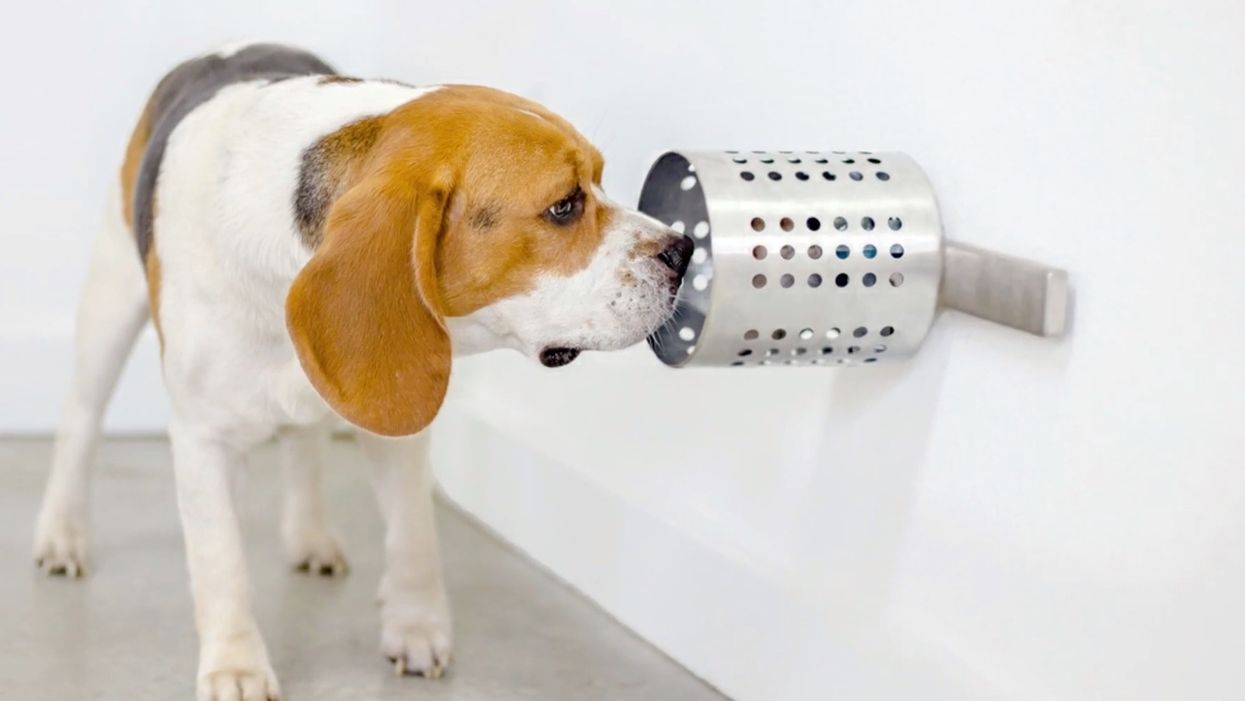
Image source: BioScentDx YouTube video screenshot

'Although there is currently no cure for cancer, early detection offers the best hope of survival'
Dogs have an uncanny ability to sniff out bombs, drugs, and even some health issues such as seizures and low blood sugar in diabetic patients.
A new study shows that specially trained dogs can also smell cancer in blood samples with a 97 percent accuracy, according to Heather Junqueira, the lead researcher at Florida-based BioScentDx.
"Although there is currently no cure for cancer, early detection offers the best hope of survival," Junqueira told Science Daily. "A highly sensitive test for detecting cancer could potentially save thousands of lives and change the way the disease is treated."
Dogs' smell receptors are 10,000 times more accurate than humans, which means they can detect subtle changes in blood and breath chemistry that humans cannot smell, according to researchers.
Junqueira presented her team's study this week at the annual American Society for Biochemistry and Molecular Biology in Florida.
About five years ago, Junqueira founded BioScent K9, a nonprofit organization, that trained beagles to alert diabetic patients of an oncoming drop in blood sugar.
Soon after she started the organization, her father died after a late-stage cancer diagnosis. His death prompted Junqueira to begin researching cancer.
She found the Pine Street Foundation in San Anselmo, California, where researchers used dogs to identify lung and breast cancer using breath condensation and saliva.
Junqueira reached out to the foundation and the researchers shared their findings with her.
From there, she and her team started training a team of four beagles to identify the difference between blood serum samples of healthy patients and those with lung cancer.
Three of the dogs identified cancer with an accuracy of 96.7 percent, and they identified normal samples 97.5 percent of the time.
One of the pups, named Snuggles, was unmotivated to perform, Junqueira told Science Daily.
The inexpensive screening test has shown great promise for early cancer detection, according to the researchers.
"We had one patient where the dog identified the cancer, but doctors couldn't find it until 18 months later," Dr. Tom Quinn told Your Observer in an interview earlier this year. Quinn is a research professor at Lake Erie College of Osteopathic Medicine in Bradenton, Florida, who has partnered with BioScentDx.
Scientists are using the research to help them develop other diagnostic tools based on the biologic compounds detected by the dogs, she added.
"This work is very exciting because it paves the way for further research along two paths, both of which could lead to new cancer-detection tools," Junqueira said. "One is using canine scent detection as a screening method for cancers, and the other would be to determine the biologic compounds the dogs detect and then design cancer-screening tests based on those compounds."
The company offers a mail-order cancer detection service that uses a person's breath.
Samples are collected by having the person breathe into a surgical mask for several minutes and sent to the company for testing.
It takes about four weeks to receive results from the $50 test.
The test cannot identify the location of the cancer. The company recommends sharing positive results with a physician.
BioScentDX Gen Explaineryoutu.be